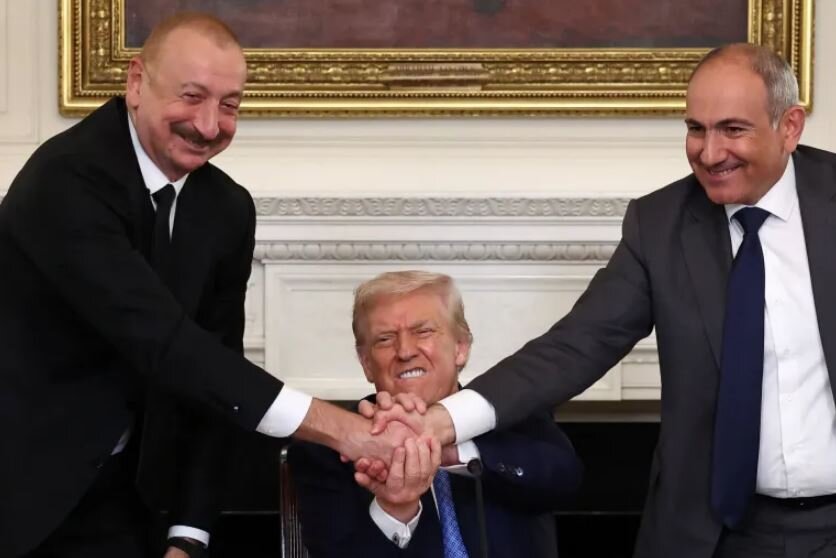Pezeshkian’s aide warns of rising tensions as US eyes new foothold in Caucasus

TEHRAN – Mehdi Sanaei, an advisor to the Iranian president and former envoy to Russia, has become the second Iranian official to raise concerns over Washington’s expanding footprint in the Caucasus, warning that the current situation could foreshadow heightened regional tensions in the future.
“Iran welcomes peace among its neighbors and does not oppose the removal of blockages from transportation routes,” Sanaei wrote on X. “However, it is sensitive to plans that would involve extra-regional powers and organizations in the security and geopolitical framework of the historical Caucasus region and warns against the potential for increased tensions through such means.”
Under a deal signed between Azerbaijan and Armenia in Washington on Friday, Armenia granted the U.S. exclusive rights to develop a corridor in its southern Syunik province—which borders Iran—linking Azerbaijan to Nakhchivan.
While the agreement is non-binding and must first be approved by the Armenian parliament before implementation can begin, it has already increased alarm inside Iran, which has long opposed the presence of foreign forces in the region. Iran has consistently maintained that any corridor linking mainland Azerbaijan to its landlocked exclave in the vicinity of Iran should not be placed under the control of a third country.
Analysts also warn that the alteration of Iran’s historical borders with Armenia would change the geopolitical order of the Southern Caucasus and restrict Tehran’s ability to use transport networks in the region. Security concerns also loom large, with fears that Washington could exploit the corridor as an espionage platform against Iran.
Previously, Ali Akbar Velayati, senior advisor to Leader of the Islamic Revolution Ayatollah Seyyed Ali Khamenei, said Iran would block the establishment of a U.S.-controlled corridor in Armenia “with or without Russia”. Moscow, the traditional broker between Armenia and Azerbaijan, has been sidelined by Washington.
“The security in Southern Caucasus is at stake with the implementation of this plot ... and Iran has emphasized that with or without Russia it would move to (preserve) stability in Southern Caucasus,” Velayati told the Tasnim news agency.
The former Iranian foreign minister added that the corridor would also lead to the increased presence of the U.S. and the North Atlantic Treaty Organization (NATO) in the region. “We will not allow NATO to approach Iran’s northern borders.”
